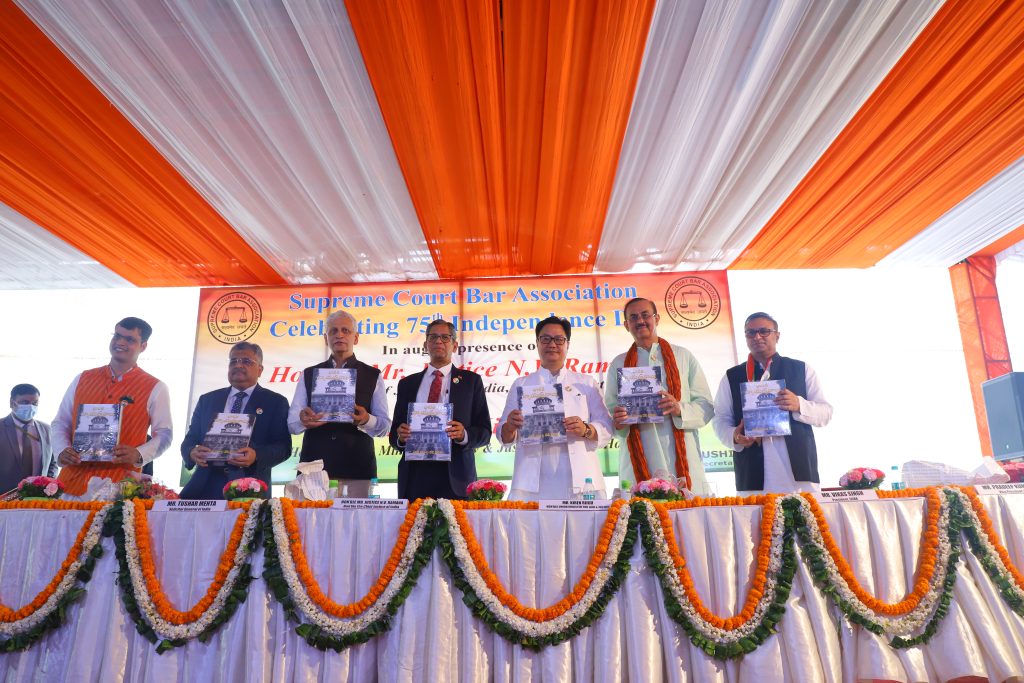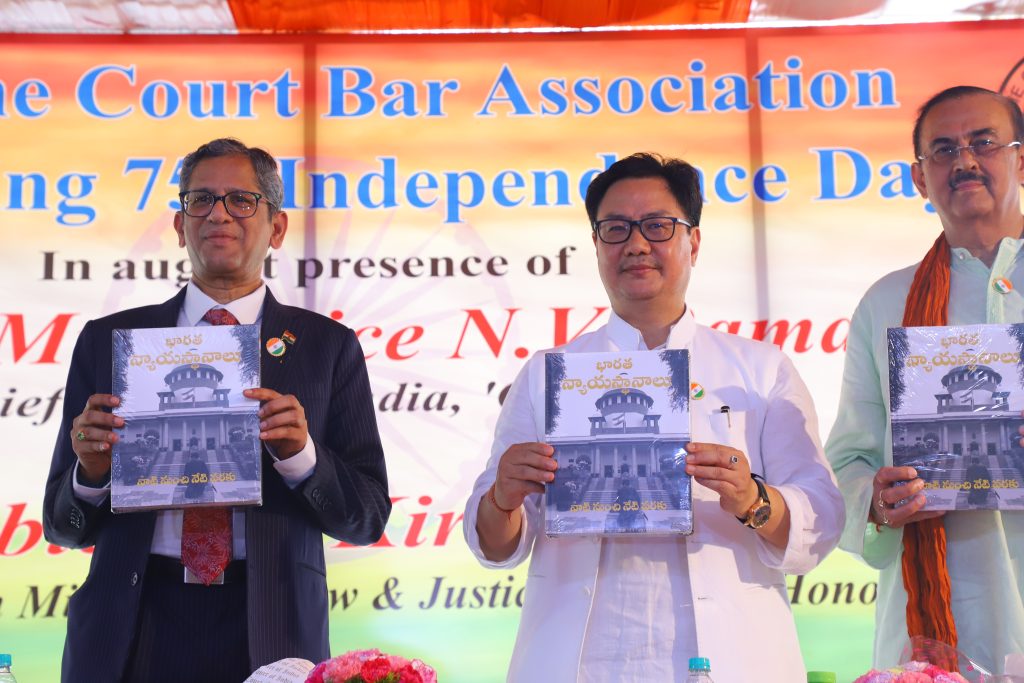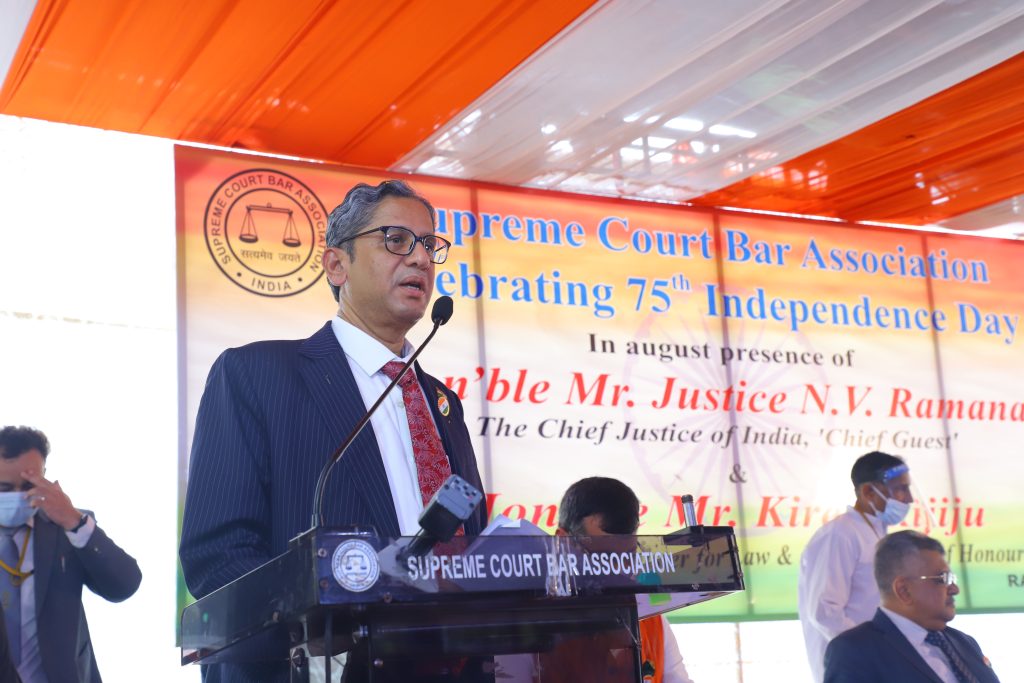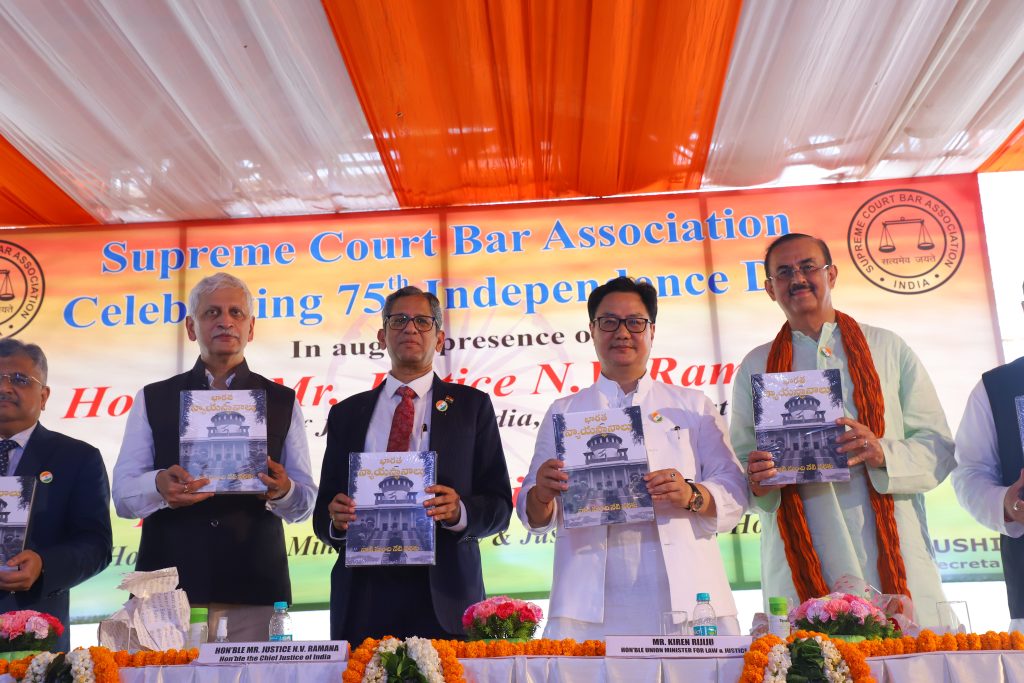Sangeeta Sharma
New Delhi, Aug 15 (LAB) Reminding the nation of the motto of the Indian Supreme Court, Chief Justice NV Ramana said, ‘Yatto Dharma Sthato Jaya’ Where there is Dharma, there is Victory.
Quoting the eminent legal luminary Nani Palkhivala who said “Dharma lives in the hearts of public men; when it dies there, no Constitution, no law, no amendment, CJI said that the act of doing justice transcends beyond the law.
Addressing the gathering at the celebrations of 75th Independence Day at the Supreme Court Complex, Justice Ramana said that the Indian Constitution is the fundamental document, which regulates the relationship between the citizens and the Government. “People are confident that they will get relief and justice from the judiciary. It gives them the strength to pursue a dispute. They know that when things go wrong, the judiciary will stand by them.
“While the Constitution has granted us inalienable rights, it places upon us certain fundamental duties, which are not merely pedantic or technical. They were incorporated as the key to social transformation. Our framers imagined a nation, where citizens are aware, alert and able to make the right decisions,” Justice Ramana added.
He said under the Constitutional framework, each organ has been given a
unique obligation. The notion that Justice is only the responsibility of the Court is dispelled by Article 38 of the Indian Constitution, which mandates the State to secure justice: social, economic and political. Every deed of each organ of the state has to be in the spirit of the Constitution. All three organs of the state- the executive, legislature and the judiciary, are equal repositories of Constitutional trust.
The Indian judiciary, since its inception, strove to fulfil constitutional aspirations. The judiciary has, through interpretative exercise, also strengthened various independent institutions, be it the Election Commission, the Central Vigilance Commission, the Comptroller and Auditor General of India and so on, Justice Ramana said.
He said the legislature may not be able to foresee the issues, which might come up during the implementation, adding that by interpretation of statutes, the courts have given effect to the true intent of the legislature and also made the statutes relevant to contemporary times.
The goal of our Constitution framers was to establish a democracy, where a nation is built on the aspirations of the people and where equality takes centre stage. To have a democratic form of governance, was of utmost importance for us to hold the society together.
“Our system will truly belong to the people when we honour and cherish
our diversity. The lawyers are best placed to be the ambassadors in promoting constitutional culture and spirit. While it is the mandate of the constitutional courts to uphold human rights and fundamental
freedoms, lawyers play an instrumental role in leading the courts in the right direction. It is essential for each generation to share with successive
generations the experiences and struggles of the past.
The CJI called language as a significant key to accessibility and released a quality publication of the Supreme Court in Telugu. The book ‘Courts of India – Past and Present’ is in seven languages. I hope this book will appear in all Indian languages soon. I congratulate the Director and officials of the Supreme Court Library for doing a commendable job. It has been my personal endeavour to advocate for the Indianisation of Judiciary, Justice Ramana said.

“My caution to the young professional is that there are no shortcuts to success. Hard work and sincerity always pay in the long run. One should not lose hope. Remember your commitment to society. This institution needs your vigour and the freshness of your thoughts. I urge every citizen, to be a meaningful stakeholder in our democracy. We all must try to imbibe the Constitutional philosophy in its true spirit,” Justice Ramana added
The Independence day function, organized by the Supreme Court Bar Association besides having the CJI as chief guest, was attended by Union Law Minister Kiren Rijiju, CJI designate Justice UU Lalit, Solicitor General Tushar Mehta, SCBA president Vikas Singh, SCBA vice president Pradeep Rai, senior advocates, senior judges of the Supreme court among other dignitaries. / LAB/SNG/



